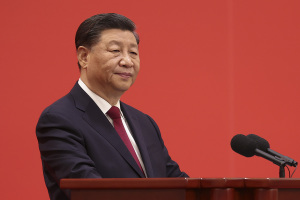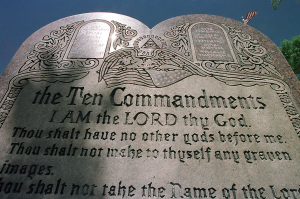What Perry Noble Gets Wrong About Donald Trump

Who is Donald Trump? As some Christian leaders praise him, it's becoming evident they don't really understand the man they speak of.
Take megachurch pastor Perry Noble's recent words:
… Noble wrote that Trump's "message is clear." "What does Donald want to do? 'Make America Great Again!' He says this over and over, and people know what he is running on," the megachurch pastor wrote.

"Question: What is [Ted] Cruz's message? (Sound of crickets) What about [John] Kasich? (Anyone … anyone … Bueller …)"
He noted that other successful campaigns in the past, such as President Barack Obama in 2007, have also had clear messages, such as "hope and change."
"If we want to become great leaders then there must be time invested in making our message clear, concise and consistent," he added.
There are at least two problems with Noble's claims.
First, "Make America Great Again" is not a clear message, and neither was Obama's "hope and change." There is a difference between a clear message and a memorable catchphrase that tickles the ears. To be blunt, this is exactly the kind of thing Adolf Hitler and most nationalistic dictators are good at. They know how to turn a phrase and catch the ears of a despairing or angry public.
According to Geoff Layton's "Access to History: Democracy and Nazism: Germany 1918-45," one of the three themes of Nazi propaganda was "The Führer cult. Hitler was portrayed as a messiah-type figure, who could offer strong authoritarian leadership and a vision for Nazi Germany's future." Hitler himself said, "The broad masses of a population are more amenable to the appeal of rhetoric than to any other force."
Such manipulation — by Hitler, President Obama, Donald Trump, or anyone else — should not be confused for clarity.
The second problem lies with consistency. No one can actually claim consistent policy as a strong point of Donald Trump's. On issues of substance that matter to conservatives and to Christians, Donald Trump flips and flops.
First, he was for partial-birth abortion. Then he said he believed abortion was terrible. Next, he praised Planned Parenthood, even thought they end the lives of over 300,000 unborn children every year in the U.S., and over 7 million since 1970. Along the way, Trump named two judges he would consider for the Supreme Court. One is an outspoken advocate of partial-birth abortion, and the other stopped a state from defunding Planned Parenthood. His most recent claim is that the Republican party should change its pro-life platform and accept more abortions. If this is a consistent message of anything, it's a consistent message of someone who doesn't think abortion is all that terrible.
Further examples of Trump's flip-flopping and lack of consistency abound.
At first he chose to side with liberals on the transgender bathroom issue, and criticized North Carolina's choice to protect children in their own state. Then, on a talk show that night, he changed his tune, saying that North Carolina had the right to do as it wished.
Trump talks a hard line on immigration, but his real position comes out when he tries to woo donors and explains later on TV that "everything is negotiable."
Though he claims to be a conservative, Trump names healthcare, education, and housing as three of the four main jobs of the federal government. If I didn't know better, I'd think Donald Trump was running for the Democratic nomination.
His convention manager, Paul Manafort admitted that Trump knows how to play a part and is "evolving." The facts would indicate that this part playing is inconsistent and damaging to true conservatism.
One of the best — or worst — examples is Trump's funding of Hillary Clinton and his praise of her as a "terrific woman" who "does a good job" back in 2012. In 2006, Trump and his son combined to donate a $50,000 to Democrat campaign committees that existed for the purpose of getting a Democrat majority in Congress. Now that he's running against Hillary and the Democrats, Trump is attempting to backtrack his support, but he can't effectively shout past his donations and past actions.
It's time for Christian leaders like Perry Noble and Sarah Palin to stop defending Donald Trump. If his past record and inconsistent, unclear policy decisions are any indication, he will not be a president who will support the values Christians hold near and dear. And now is the time to open our eyes before it's truly too late.




























